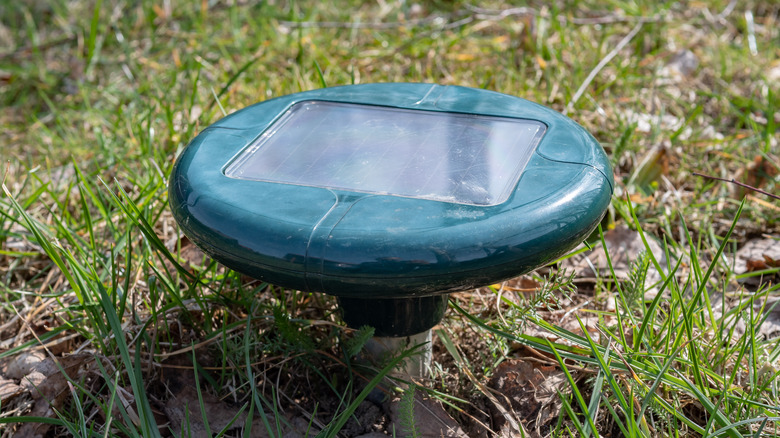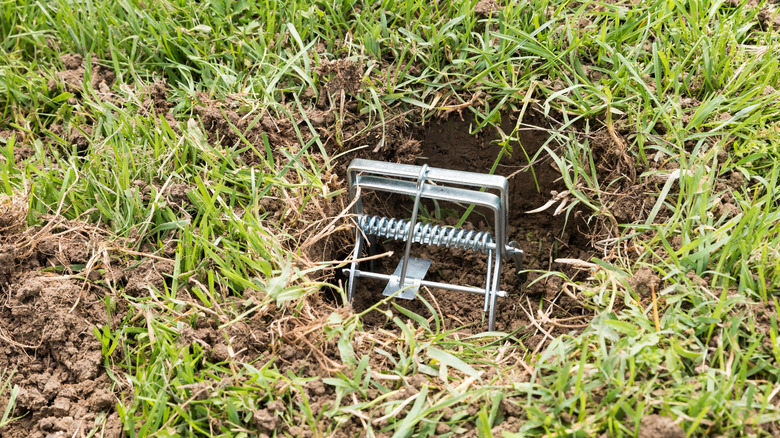Will Sonic Spikes Really Keep Moles Out Of Your Yard & Garden?
If moles are turning your yard and garden into their playground, you might have considered using sonic spikes as a solution. These devices, designed to be planted in the ground, emit vibrations and sounds that are theoretically unsettling to moles. The idea is simple: create an uncomfortable environment for these subterranean creatures, encouraging them to relocate. However, the effectiveness of sonic spikes is a subject of debate. A dive into customer reviews on Amazon reveals a significant number of disappointed users, reporting that these devices did not meet their expectations in repelling moles. Similarly, some pest control companies are not entirely convinced of their efficacy either, often favoring more traditional mole control methods.
The inconsistency in results suggests that, while sonic spikes might disrupt the moles' environment to some extent, they are unlikely to be a standalone solution for getting rid of moles. Remember, moles are solitary and primarily subterranean animals, spending most of their time underground in search of food. The noise and vibrations alone might not be enough to deter moles, particularly in areas where they have built extensive tunnel networks and have access to a variety of food sources. This doesn't mean sonic spikes are entirely ineffective, but rather, they should be viewed as one component in a broader strategy for mole control.
Integrating sonic spikes with other mole-repellent strategies
If you've opted to use sonic spikes, you can install them in various parts of your yard where you've noticed mole activity. However, as mentioned earlier, you'll need to use it as part of a comprehensive strategy. First, you need to cut off their food supply. Moles thrive on grubs and earthworms lurking in your soil, so reducing these critters will make your garden less of a mole-magnet. You've got two routes here: the natural way, with beneficial nematodes, or with chemical insecticides that target grubs and earthworms. Pick the one that fits your garden's vibe and your take on eco-friendliness.
Next up, predator scents. Moles are scared of certain animals, like foxes or cats. This is where you play a bit of mind games with them. Find products that replicate these predator scents. Apply them liberally all around the spots in your garden where you've seen mole activity, such as molehills or disturbed soil. This method is all about triggering the moles' instinct to avoid danger, making them think twice about hanging around your garden. Remember, consistency is key with predator scents. Regular reapplication, particularly after rainy conditions, is necessary since the scent tends to weaken or wash away over time. This consistent application helps to sustain an environment of threat for the moles, reinforcing the idea that your garden is not a safe place for them.
Using traps and fences
Traps are your frontline defense since they deal with moles directly. When using traps, you first need to identify the active tunnels and runways. Place your traps around these areas. The beauty of traps is that they don't just deter moles; they physically remove them from your garden. It's a hands-on approach, but it's proven to be effective. Next, think about setting up some underground barriers. Now, this might sound like a bit of a project, but it's worth the effort. You'll want to install these barriers a foot deep from the soil surface. You can also choose to install it around the areas of your garden that you want to protect. This could be around your flower beds, vegetable garden, or any other mole-favorite spots. These barriers act like a fortress wall, stopping moles from tunneling their way into these protected zones. It's a more permanent solution and, once in place, requires minimal maintenance.
Lastly, don't underestimate the power of a well-maintained garden. Regular garden upkeep is crucial. Clear away garden debris and fallen leaves, and keep your lawn neatly trimmed. Moles love hidden, cluttered spaces, so by keeping your garden tidy, you're removing potential hiding spots. Think of it as making your garden less appealing to these animals.


